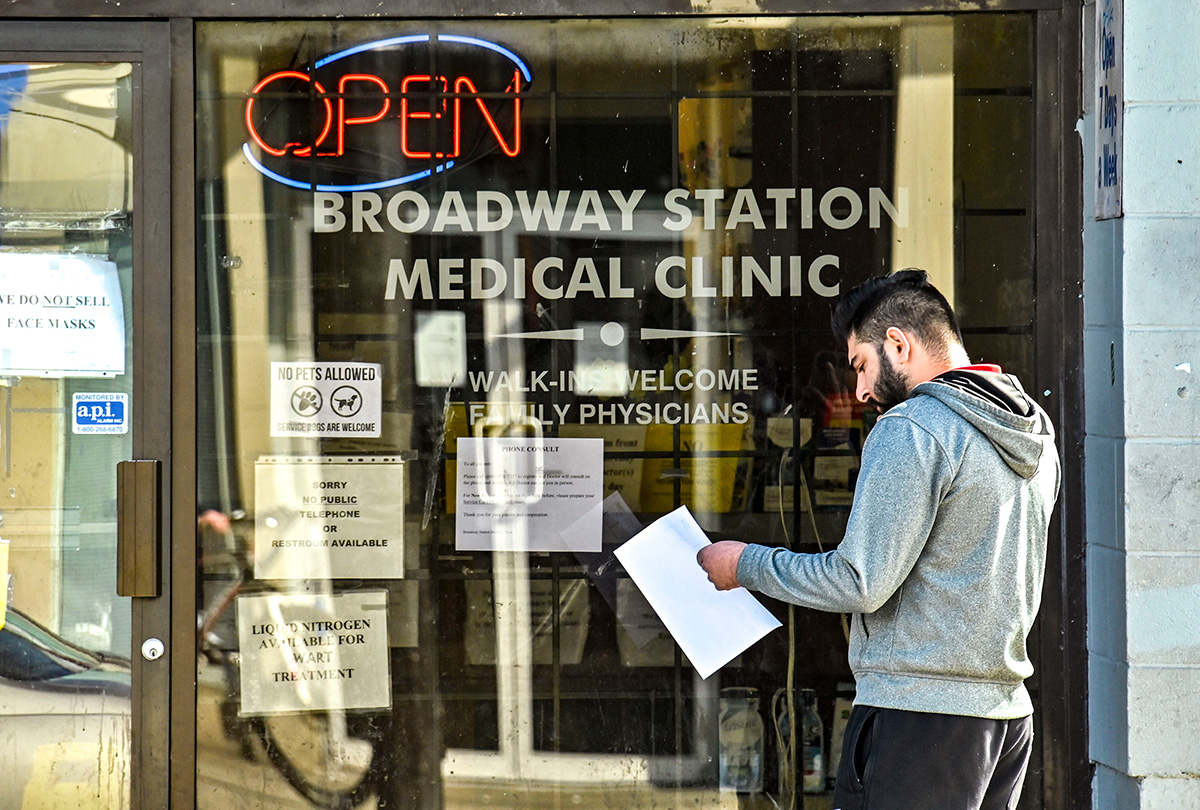Compiled by veteran medical journalist Brian Owens, this roundup of some of the newest science on the COVID-19 pandemic, straight from the scientific journals, is presented by Hakai Magazine in partnership with The Tyee.
Men are less concerned, despite higher risk
Men are generally less concerned about the coronavirus pandemic than women, according to a survey of attitudes in 10 different countries — despite the fact that the disease is considerably more dangerous for men. The survey also found that the most concerned people practiced prevention, such as frequent handwashing and wearing masks. The most important psychological factors of risk perception, the research showed, was a person’s level of “prosociality” — that is, the belief in the importance of acting for the benefit of others.
Journal of Risk Research, May 5, 2020
Androgen deprivation could protect men
Androgen-deprivation therapies used to treat prostate cancer appear to protect men from COVID-19. A study in Italy has found that although men are at higher risk from COVID-19, those being treated with ADT are less likely to get it, and the disease is less severe in those who do become infected.
Annals of Oncology, May 7, 2020
N95 masks can be sterilized up to 50 times
N95 respirator masks and other personal protective equipment have been in short supply throughout the pandemic. These shortages have forced health-care workers to reuse their masks. A study of five different sterilization methods between uses has found that heating masks to 85 C for 20 minutes is sufficient to kill pathogens. This can be done 50 times without compromising the mask’s filtration efficiency. Other methods, such as spraying them with ethanol or bleach, drastically reduces the efficiency of the mask after just one treatment.
Symptom tracker app could predict outbreaks
A mobile app that allows users to log their daily symptoms (or lack of symptoms) could help predict geographic hotspots of COVID-19 up to a week in advance, according to a test of the app in the United Kingdom and United States using people who were already enrolled in long-term health studies.
Common mutations in SARS-CoV-2 identified
By studying the genetic code of 7,500 samples of the SARS-CoV-2 virus, researchers have identified almost 200 mutations that have independently occurred more than once. These repeat mutations indicate how the virus might be evolving and adapting to its new human hosts. Researchers cannot say whether these mutations make the virus more or less deadly or contagious. The mutations are not evenly distributed across the virus’s genome, and the researchers say the parts that have been mutating less could make good targets for drugs or vaccines. The work also supports the conclusion that the virus jumped from animals to humans some time in late 2019, and spread quickly around the world.
Infection, Genetics and Evolution, May 5, 2020
No baby boom from lockdown
There is unlikely to be a baby boom as a result of COVID-19 lockdowns in Italy. A survey found that more than 80 per cent of people said they do not intend to conceive during the pandemic. In fact, of those who had intended to have a child before the pandemic hit, more than one-third changed their mind, mostly citing concerns over future economic difficulties and how the disease might affect their pregnancies.
Journal of Psychosomatic Obstetrics and Gynecology, May 7, 2020
Vitamin D linked to lower death rate
Lower average levels of vitamin D are correlated with higher numbers of COVID-19 cases and higher mortality rates across 20 European countries. Countries like Italy and Spain, which have lower average vitamin D levels than northern European countries, have high COVID-19 mortality rates, while Scandinavian countries, where levels of vitamin D from food and supplements tend to be higher, have high average vitamin D levels and among the lowest mortality rates. Low vitamin D levels have been linked to susceptibility to acute respiratory tract infections in the past, but it is important to note that this study does not suggest that vitamin D can be used to either prevent or treat COVID-19.
Aging Clinical and Experimental Research, May 6, 2020
Temperature and latitude do not affect COVID-19
Hotter weather has had no effect on the progression of the COVID-19 pandemic. Canadian researchers looked at COVID-19 cases in countries around the world and found, to their surprise, little or no association between temperature or latitude and epidemic growth. They did find a weak association between high humidity and reduced growth. Public health measures, including school closures, social distancing, and restrictions of large gatherings, however, have been effective.
Canadian Medical Association Journal, May 8, 2020 ![]()
Read more: Health, Coronavirus, Science + Tech
















Tyee Commenting Guidelines
Comments that violate guidelines risk being deleted, and violations may result in a temporary or permanent user ban. Maintain the spirit of good conversation to stay in the discussion.
*Please note The Tyee is not a forum for spreading misinformation about COVID-19, denying its existence or minimizing its risk to public health.
Do:
Do not: